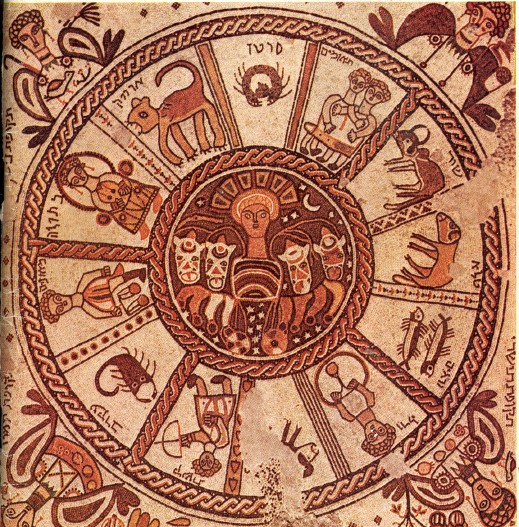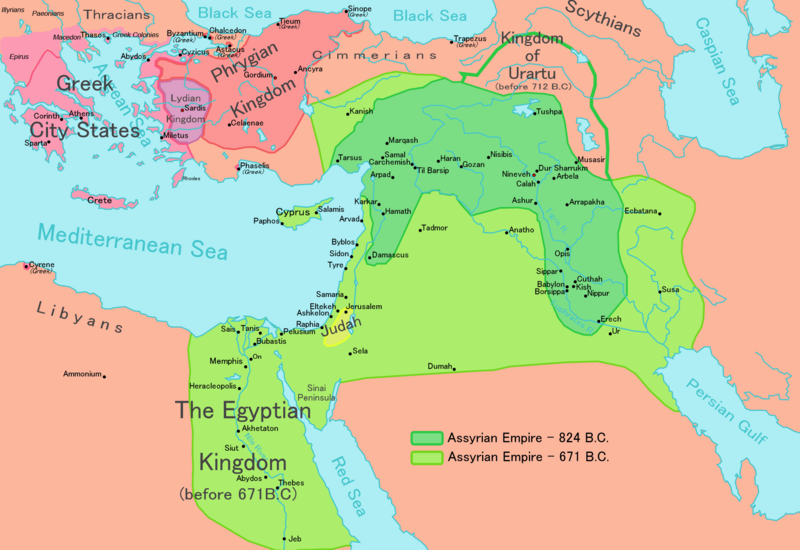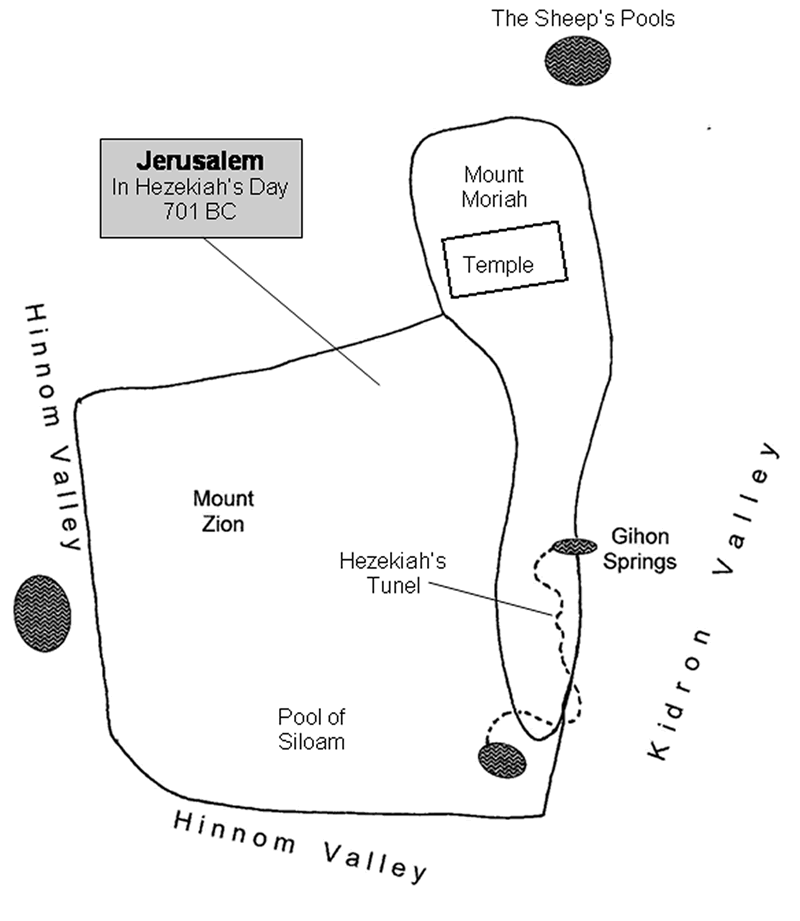In order to learn about Christianity we went on tiyul to the nearby Ein Karem, a lovely neighborhood on the edge of Jerusalem and the traditional home of John the Baptist (the New Testament only says it was in the mountains of Judah, but traditionally this is the place). This class is always one of the most challenging for me. Whereas the classes about the development of Am Yisrael are filled with meaning for me, teaching about Christianity is more academic. Also, it's a challenge to present Christianity as different from Judaism, but still credit it as a worldview that has given meaning and comfort to millions of people. And, lastly, I know so much less about it! So, as always, if you notice something incorrect in the blog, please feel free to let me know, especially today.
The story of Christianity begins during the Second Temple period, about which we've been learning for a couple of weeks. During this time there were many different sects of Jews (we've talked about four of them quite a bit, but there were certainly many other smaller sects) and plenty of people claiming to be the messiah. One of them, Yehoshua ben Yosef (Joshua son of Joseph), went on to be the most important figure in Christianity. Most scholars agree that Jesus (his Greek name) was born between 6 BCE and 4 BCE to a Galilean family. According to tradition his pregnant mother left Nazareth, where they were living, and came to visit her relative, John the Baptist's mother, in Ein Karem. Then, due to a census requiring that everyone return to his/her ancestral homeland, the unborn Jesus and his family went to Bethlehem, where Jesus was born.
From a historical perspective, this story doesn't make much sense. The point of a census (from ancient times until today) is to learn about the population of an area in the present day, mostly in order to assess taxes and conscript soldiers. Given these goals, having everyone go to a place where they may not currently be living is silly. Of course, there are plenty of arguments against this line of thinking, ranging from "God can do whatever God wants" to "this census was special and different for reason X." If you believe that this story doesn't make historical sense then we have to ask why it exists. The answer is that early Christianity was a sect of Judaism, whose goal was to attract more Jews. According to Jewish tradition the Messiah will come from the line of King David, who, as we know, was born in Bethlehem. Therefore, if you want to convince Am Yisrael that someone is the Messiah you need to show that his family comes from Bethlehem (also, it can be challenging to reconcile Yehoshua as a direct descendant of David with the fact that his father, according to tradition, wasn't biologically his father due to the immaculate conception).
Whatever your take on his birth we don't hear much about Jesus until around the time of his Bar Mitzvah. At this time he and his family go to visit Beit HaMikdash, an event that fits in very well with what we would expect from a family like his in this time period. While there, Yehoshua gets lost, and his parents later find him discussing the law with the Pharisaic leaders, who are impressed by his erudition. On the one hand, if Yehoshua was a great Rabbi, this shouldn't be surprising. On the other hand, as a poor peasant from a backwater Galil town (which Nazareth was at the time), it's unlikely that Yehoshua was a scholar, if he was even literate.
After his visit to Beit HaMikdash we again don't hear much about Yehoshua for a while. The story resumes when he meets his relative John the Baptist (at the time it probably would have been more accurate to call him Yochanan the Mikve Man) and gets baptized. After wandering through the desert and being tempted by Satan, Yehoshua returns to the Galil (specifically the area near the Kinnerret, the Sea of Galilee) and begins to preach and do miracles. One of the few direct teachings we have from Yehoshua (as opposed to later reports and explanations by his followers) is his
Sermon on the Mount, in which he preaches to all his followers. Some of what he says in this speech, such as "blessed are those who hunger and thirst after righteousness" fits perfectly with Jewish dogma. Other parts, such as "blessed are the meek" do not. For Jews, each life has independent value to Hashem. So, for example, Jews aren't allowed to commit suicide because we're not allowed to just give away our lives if we feel like it; it's not ours to give. By a similar token, the idea of "turn the other cheek" (which seems to me to be quite similar to "blessed are the meek") is not a Jewish value. Your life and well-being have independent value, and you're not allowed to let someone trample on that. (Also, for Jews, there's nothing inherently wrong with being wealthy, assuming you still act appropriately, which is different from the Christian view that says "it's easier to fit a camel through the eye of a needle than for a rich man to get to heaven.")
Eventually Yehoshua and his disciples head to Jerusalem and, upon arriving, Yehoshua cries and prophesies the destruction of Beit HaMikdash. Throughout his life and teachings its clear that Yehoshua believed the wealthy, and specifically the Sadduccee priests running the Temple, were corrupt and immoral (and, by the way, he wasn't the only one). In our day and age we might expect Yehoshua to be one of the leaders of the "Occupy" movement. (This certainly elucidates his view, mentioned above, about the difficulty of rich people getting into heaven.) After spending a few days in Jerusalem Yehoshua and his disciples sit down for what history will call "The Last Supper." Judas, one of Yehoshua's disciples, then betrays him and turns him over to the Jewish leadership (as Yehoshua predicted). The Jewish leadership (meaning the Sadduccee priests) are, obviously, not big fans of Yehoshua, who has been lambasting them as corrupt and allowing people to refer to him as the Messiah (which makes him, officially, a heretic). The priests then turn Yehoshua over to Pontius Pilate, the contemporaneous procurator (Roman government official).
According to Christian tradition, Pontius Pilate does everything he can reasonably do to avoid killing Yehoshua, including giving the people a choice between Yehoshua and a zealot leader. In this case, it's hard to reconcile the traditional story with the historical research. Pilate, according to non-Christian sources, was a terrible, rapacious procurator, and there are no other examples of a procurator offering the crowd the opportunity to exonerate a prisoner. A traditional Christian response might point out that this was during Pesach (Passover), one of the three pilgrimage holidays, so Jerusalem would have been packed with extra people and particularly susceptible to revolution. Given these concerns it's possible that Pilate changed his tune and made a one time decision to allow this amnesty-by-referendum.
At any rate, according to tradition, the crowd votes to release the zealot (perhaps with some "encouragement" from his zealot buddies in the crowd) and Yehoshua is crucified, an extremely common way to kill someone at the time (to the point that bored Roman soldiers would crucify people sideways, upside down, etc.) After his crucifixion and death Yehoshua was put in his tomb. Christian tradition then tells us that when his followers went to visit the body he wasn't there, and that he spent the next several weeks visiting his students and performing miracles before finally ascending to heaven.
Rather than continue the story of the development of Christianity (which includes the writing of the four gospels and the conversion of Paul, who begins to preach more to pagans than to Jews and who does much of the organizing and public relations that turns Christianity into a prominent religion), I'd like to change focus and discuss one of the main differences between Judaism and Christianity. One of the most important conceptual differences is the idea of original sin. For Christians, when Eve ate the apple in the Garden of Eden she tainted all of humanity with sin, so that even a newborn baby is already sinful. According to this view of humanity--that we are all innately blemished--no one can go to heaven. In order to solve this problem, Yehoshua, who is not tainted by original sin because he's godly, but can make a meaningful sacrifice because he's human, sacrifices himself. The rest of humanity, by believing in Yehoshua as the messiah can, in this way, absolve ourselves of original sin and get into heaven.
This aspect of Christianity is interesting and important for a number of reasons. First of all, it shows how theologically Christianity is much more complex than Judaism. The ideas that Yehoshua is both God and man (which, as I explained above, is necessary for Christian theology) and that God has three different aspects/"persons" are quite complicated compared with Judaism's straightforward belief in one god. (Of course, Judaism is complicated in other ways. Good luck explaining that a Jew has to walk up 10 flights of stairs on Shabbat rather than take the elevator because he's supposed to be resting.) Even more important, however, is the idea in Christianity that the path to heaven must run through Yehoshua, meaning the central tenet of Christianity is acceptance of Yehoshua as the messiah (or christ in Greek).
A Jewish joke will help explain the difference. Rabbi Moshe and Rabbi Shmuel are having a deep theological discussion late into the night. As dawn approaches they finally prove definitively that there is no god. Parting ways Rabbi Moshe climbs into bed, but, distraught over this discovery, can't fall asleep. After a couple hours he sees Rabbi Shmuel on his way to the beit knesset (synagogue) to pray shacharit (the morning prayers). Flabbergasted, he calls out to him, "Rabbi Moshe, we just proved that there's no god, what are you doing?" Rabbi Moshe answers him "god, shmod, you still have to pray three times a day."
This story illustrates the point that in Judaism faith is much less important than behavior and, specifically, following the law. Is it better to believe and have really pure motives? Absolutely. But if you're questioning your faith or you woke up on the wrong side of the bed and don't feel like following the law do you still have to? Definitely. Whereas faith is the central tenet of Christianity, following the law and behaving like you're supposed to is the central tenet of Judaism. (Judaism also tells us that often people who originally do the right thing for the wrong reason end up doing it for the right reason, such as Oscar Schindler.) Just to be clear, I have no doubt that if you asked a Christian leader whether Christians are required to behave in a moral, righteous way, the answer would be an unequivocal, emphatic "yes." (and I suspect the leader would encourage you to model your behavior on the life of Jesus, whom he would encourage you to accept as messiah). And if you asked a Jewish leader whether Jews are required to believe in Hashem as the only god you'd get a resounding "yes" as well. But if we're trying to compare the religions, it's clear that Christianity puts a greater emphasis on faith.
Do you think these differences say anything about the respective religions? Does the modern Christianity you see reflect this emphasis on faith? Should Am Yisrael put more of an emphasis on faith? Do you think this would encourage more unity?













